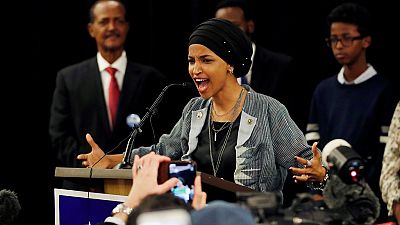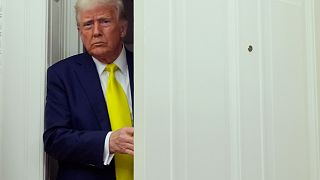USA
In the historic mid-term elections of the United States, voters elected two Muslim women, both Democrats, to Congress, which was eventually won by the Democratic Party, while Donald Trump’s Republican party retained control of the senate.
Ilhan Omar, a Somali refugee, won a House seat in a heavily-Democratic district in the Midwestern state of Minnesota, where she will succeed Keith Ellison, himself the first Muslim elected to Congress.
“I decided to run because I was one of many people I knew who really wanted to demonstrate what representative democracies are supposed to be,” the hijab-wearing Omar said in a recent magazine interview.
Ilhan Omar, a former Dadaab refugee elected to US Congress. #ElectionNight pic.twitter.com/znT8voSoeL
— Daily Nation (@dailynation) 7 novembre 2018
Omar fled Somalia’s civil war with her parents at the age of eight and spent four years at a refugee camp in Kenya.
Her family settled in Minnesota in 1997, where there is a sizable Somali population.
SUGGESTED READING: The three Somali-Americans bossing Minnesota legislative politicsVictory despite anti-Muslim sentiment
Rashida Tlaib, a social worker born in Detroit to Palestinian immigrant parents, won a House seat in a district where she ran unopposed by a Republican candidate.
The two politicians will increase the total number of Muslims in the House to three. Congressman Andre Carson, who is Muslim and African American, won re-election in his safely-Democratic district in the state of Indiana.
The electoral milestone is in stark contrast to the rise in anti-Muslim sentiment around the country.
The Council on American-Islamic Relations (CAIR) reported a 21 percent increase in anti-Muslim hate crimes in the first six months of 2018.












Go to video
South Africa's Ramaphosa holds phone call with Trump, to meet 'soon'
Go to video
Trump says U.S. and China will 'get along great'
Go to video
Pope Francis’ funeral to be held on Saturday 26 April at Saint Peter's Basilica
Go to video
South Sudan to send delegation to the U.S. in a effort to appease tensions
Go to video
Kinshasa reacts to Trump's claim that 'many' Congolese come to US
Go to video
Iran, US confirm third round of nuclear talks in coming week